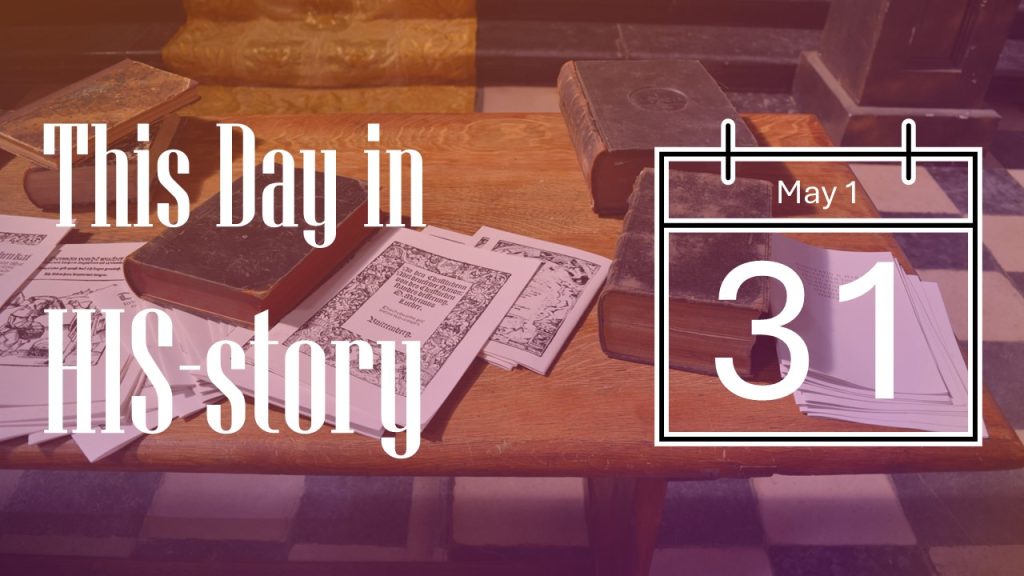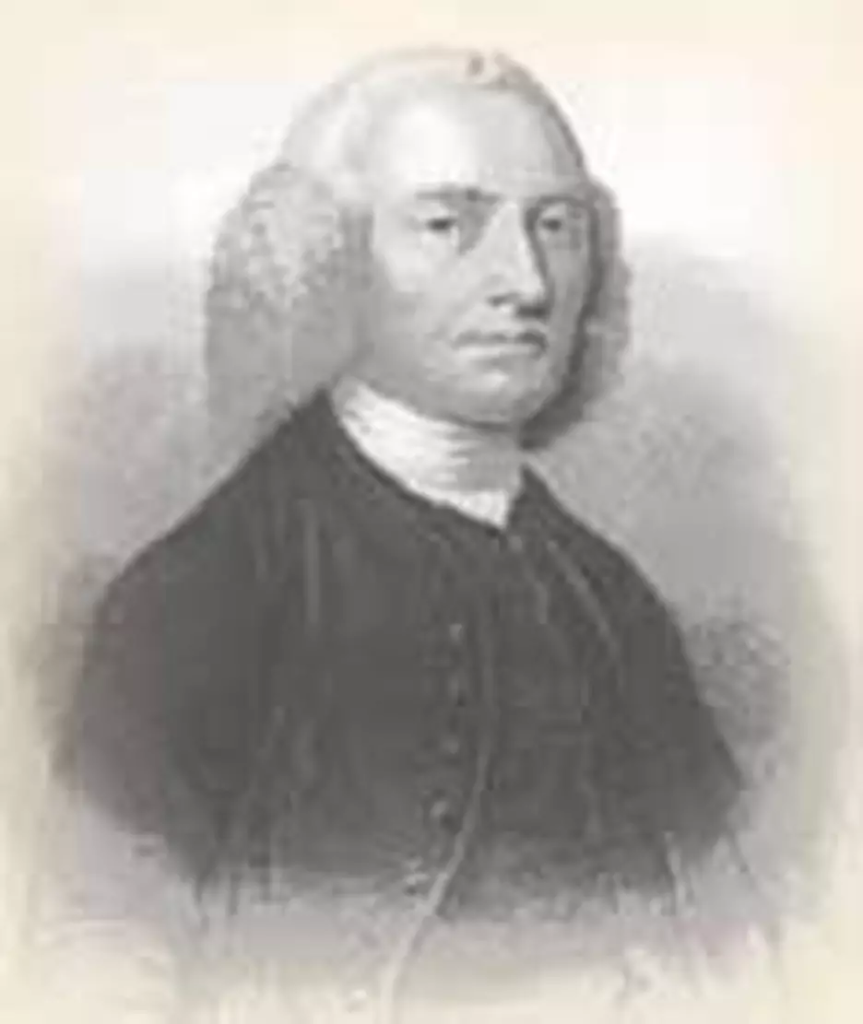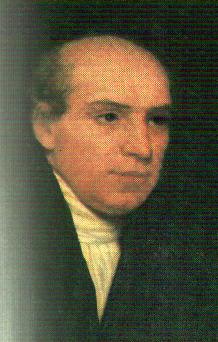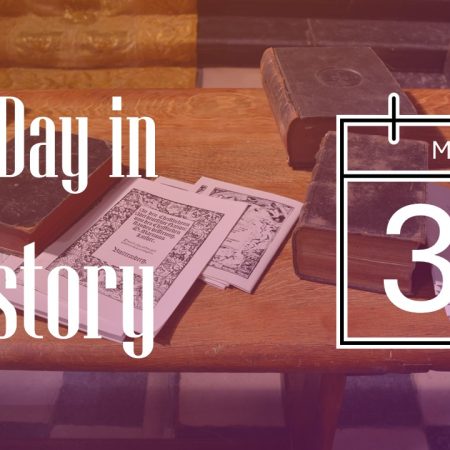
1700
The man with the sponge lifted it and dabbed at the wall, wiping off the “No. 45” chalked there. Wherever he saw this popular slogan, he repeated his action.
It was Alexander Cruden‘s odd way of showing his loyalty to King George III and cleaning up morals. George had given the poor, half-mad scholar £100 for dedicating the second edition of his Bible Concordance to him. But the king’s government was not popular. When John Wilkes published a vicious and dirty-minded attack against the king in issue number 45 of the North Briton, “No. 45” became the rallying cry of the opposition. Cruden was doing his bit to clean up culture.

Born on this day, May 31, 1700, he seemed likely to be highly successful, completing his masters degree at a young age. However, when a girl rejected him, his mind snapped and he spent time in mad houses. In spite of this, he did well in business. He became the official bookseller to the queen and corrected proofs for fifty years, giving more than half his income to charity.
For the most part he was more annoying than dangerous. He fell in love and pestered women to marry him. His one act of violence was to whack a blasphemer with a shovel. He petitioned Parliament to name him the official corrector of public morals and even wrote a book titled The Adventures of Alexander the Corrector. He bugged the king to make him a knight so that he would have the influence he needed to improve everyone. He even stood for a seat in Parliament, expecting that God would intervene to put him in office.
Cruden actually did bring about one bit of reform. He wrote an account of his mistreatment in mental wards. Sympathetic readers were able to use its evidence to improve conditions.
On another occasion, convinced that a weak-minded sailor named Potter had been unjustly condemned to die, Cruden rushed from government office to office for two days, pleading for the man’s life. Every chance he got, he fell to his knees in prayer for Potter’s soul. A rare reprieve came just hours before Potter was to hang. Cruden then nursed the man back to health and wrote an indignant, eye-witness appeal for prison reform. He was a century ahead of his time. Although Cruden corrected people, he genuinely cared about them. Once he rebuked a street woman for plying her trade. She said she had no other way to earn a living. Cruden asked everyone he knew to hire her as a maid. When no one would, he employed her himself. She worked for him faithfully for several years and sobbed pitifully when he died alone in his room.
But Cruden’s place in Church history is owing to his contribution to Bible scholarship. A Bible concordance is a dictionary that lists the words that appear in the Bible and shows in what verses they can be found. When you consider how long the Bible is, you can easily see how useful such a dictionary must be. The best concordance of Cruden’s day listed the words with the verse numbers under them. As many as five hundred men had worked at preparing it. Cruden saw that he could make a much more useful version. Working all alone with scarcely a break for eighteen months, he wrote a new concordance. His great innovation was to quote a bit of verse around each word.
The first edition did not sell well. Cruden became depressed. Later editions of the concordance did much better. The famous preacher Charles Spurgeon said that the concordance was as necessary to a preacher “as a plane to the carpenter, or a plough to the husbandman.”
Cruden died at 71. He was found kneeling by his bed with a Bible open in front of him.
1792
The sermon that William Carey preached on this day has been called deathless. Mission text books agree that it changed the world. Thousands, perhaps millions have read or quoted the two most remarkable phrases from it: “Expect great things from God; Attempt great things for God!”
A poorly-educated cobbler, William Carey always sought to teach himself new things. He was converted to Christ by dissenters (English Christians who operated outside of the official Church of England). Immediately he recognized that others also needed Christ. He began to preach and strained even harder to educate himself, going hungry–and allowing his family to suffer–so that he could buy himself books. He became a Baptist pastor.

Reading Captain Cook’s voyages gave him a heart for world missions. The people that Cook wrote about needed Christ. At that time, Protestants were doing little to spread the gospel world wide. Hans Egede in Greenland, the Moravians in the West Indies, David Brainerd and John Eliot in America had undertaken efforts, but the reformation church at large was idle.
But when William spoke up in behalf of missions, an older pastor responded with a withering rebuke. “Young man, sit down: when God pleases to convert the heathen, he will do it without your aid or mine.”
William sat down on that occasion, but he didn’t sit back. He was the kind of man, who once he begins a thing, must go through with it. He gathered facts and statistics, Bible commands and commonsense arguments demolishing the position of those who said the church should do nothing. The result was a book called An Enquiry into the Obligations of Christians to Use Means for the Conversion of the Heathen.
On this day, May 31, 1792, at ten in the morning, he addressed his fellow Baptists at a Nottingham conference. He took as his Isaiah 54:1, 2: “Lengthen thy cords and strengthen thy stakes, for thou shall break forth on the right hand and on the left; and thy seed shall inherit the Gentiles and make the desolate cities to be inhabited. ” As he saw it, this was a challenge for missionary work. It was a challenge for faith. “Expect great things from God; Attempt great things for God!” he urged.
At their meeting the next day, they said the venture was too big for them. Carey seized Fuller’s arm and, in deep distress asked whether they were once more going to go their separate ways without doing anything. This final plea made the difference. The gathering put forward a resolution for drawing up plans to form a Baptist Mission Society. William Carey became their first missionary.
1843
HISTORY SHOWS that when brave souls dare to rock the boat by exposing wrongdoing in the church, they are usually the ones called troublemakers rather than the actual wrongdoers. That was the experience of Orange Scott and his associates in the Methodist Episcopal Church. When they spoke against slave-owning, their church tried to silence them.

Early on, American Methodists had taken a strong stand against slavery. However, many southern Methodists owned slaves. Even some pastors held humans in bondage. In order to maintain the union of northern and southern churches, northern Methodists largely swept the issue out of sight, or called for gradual emancipation.
Orange Scott became a Christian in 1820 when he was twenty-one years old. Within six months he was preaching throughout New England. Revivals followed wherever he went. Largely self-taught, he gathered knowledge by reading and attending lectures. Not until 1833 did he encounter serious arguments against slavery. Within months he was denouncing it as a great evil; and he encouraged others to demand immediate abolition. Warned that his vocal opposition would make enemies and harm his prospects for advancement, he replied, “What I do is from a sense of duty. If the declaration and defense of anti-slavery sentiments make me unpopular, then I am willing to be unpopular. My course is onward.”
In sermons and lectures, he entreated his listeners to respect the image of God in the enslaved. He urged them not to do to others what they would not like done to themselves. He reminded them that the Bible commands us to give our servants what is fair. And because God calls himself the God of the oppressed, it is not wise to be an oppressor. God does not play favorites.
For the next nine years, Methodists from the south and bishops from New England joined to attack him relentlessly. They slandered him and stripped him of his position of leadership. Every effort Scott and his allies made to effect change was either voted down or killed with procedural motions.
Finally, in 1842, joined by LaRoy Sunderland and Jotham Horton, he left the Methodists. Soon others joined him. On this day, 31 May 1843, Orange Scott presided over a convention at Utica, New York, to establish the Wesleyan Methodist Connection. Representatives from ten regions of the United States attended. The new church was antislavery and structured without bishops and superintendents.
Scott published the Connection’s journal and managed its book supply. Already suffering from tuberculosis, he struggled on with the work for four years, dying in 1847 at the young age of forty-seven.
His associate Luther C. Matlack wrote, “He identified himself with [the antislavery] cause at a time when to do so involved the loss of reputation, property, influence, and sometimes of life itself—when abolitionists were everywhere denounced as incendiaries and fanatics, and proscribed alike in the social circle, in the church, and in the State.”
Wesleyan Methodist churches proliferated. Scott saw the group’s numbers multiply before his death, and it continues to thrive to this day, with over a million members in one hundred countries. The Orange Movement to end all human trafficking worldwide took its name from Scott.
1847
Thomas Chalmers, a highly-regarded leader in the Scottish Free Church, is found dead in bed this morning in Edinburgh, Scotland.

